- Home
- Site Index
- About Me
-
My Books
- Book List & Themes
- Strictly for Adults Novels >
-
Tales from Portlaw
>
- No Need to Look for Love
- 'The Love Quartet' >
-
The Priest's Calling Card
>
- Chapter One - The Irish Custom
- Chapter Two - Patrick Duffy's Family Background
- Chapter Three - Patrick Duffy Junior's Vocation to Priesthood
- Chapter Four - The first years of the priesthood
- Chapter Five - Father Patrick Duffy in Seattle
- Chapter Six - Father Patrick Duffy, Portlaw Priest
- Chapter Seven - Patrick Duffy Priest Power
- Chapter Eight - Patrick Duffy Groundless Gossip
- Chapter Nine - Monsignor Duffy of Portlaw
- Chapter Ten - The Portlaw Inheritance of Patrick Duffy
- Bigger and Better >
- The Oldest Woman in the World >
-
Sean and Sarah
>
- Chapter 1 - 'Return of the Prodigal Son'
- Chapter 2 - 'The early years of sweet innocence in Portlaw'
- Chapter 3 - 'The Separation'
- Chapter 4 - 'Separation and Betrayal'
- Chapter 5 - 'Portlaw to Manchester'
- Chapter 6 - 'Salford Choices'
- Chapter 7 - 'Life inside Prison'
- Chapter 8 - 'The Aylesbury Pilgrimage'
- Chapter 9 - Sean's interest in stone masonary'
- Chapter 10 - 'Sean's and Tony's Partnership'
- Chapter 11 - 'Return of the Prodigal Son'
- The Alternative Christmas Party >
-
The Life of Liam Lafferty
>
- Chapter One: ' Liam Lafferty is born'
- Chapter Two : 'The Baptism of Liam Lafferty'
- Chapter Three: 'The early years of Liam Lafferty'
- Chapter Four : Early Manhood
- Chapter Five : Ned's Secret Past
- Chapter Six : Courtship and Marriage
- Chapter Seven : Liam and Trish marry
- Chapter Eight : Farley meets Ned
- Chapter Nine : 'Ned comes clean to Farley'
- Chapter Ten : Tragedy hits the family
- Chapter Eleven : The future is brighter
-
The life and times of Joe Walsh
>
- Chapter One : 'The marriage of Margaret Mawd and Thomas Walsh’
- Chapter Two 'The birth of Joe Walsh'
- Chapter Three 'Marriage breakup and betrayal'
- Chapter Four: ' The Walsh family breakup'
- Chapter Five : ' Liverpool Lodgings'
- Chapter Six: ' Settled times are established and tested'
- Chapter Seven : 'Haworth is heaven is a place on earth'
- Chapter Eight: 'Coming out'
- Chapter Nine: Portlaw revenge
- Chapter Ten: ' The murder trial of Paddy Groggy'
- Chapter Eleven: 'New beginnings'
-
The Woman Who Hated Christmas
>
- Chapter One: 'The Christmas Enigma'
- Chapter Two: ' The Breakup of Beth's Family''
- Chapter Three: From Teenager to Adulthood.'
- Chapter Four: 'The Mills of West Yorkshire.'
- Chapter Five: 'Harrison Garner Showdown.'
- Chapter Six : 'The Christmas Dance'
- Chapter Seven : 'The ballot for Shop Steward.'
- Chapter Eight: ' Leaving the Mill'
- Chapter Ten: ' Beth buries her Ghosts'
- Chapter Eleven: Beth and Dermot start off married life in Galway.
- Chapter Twelve: The Twin Tragedy of Christmas, 1992.'
- Chapter Thirteen: 'The Christmas star returns'
- Chapter Fourteen: ' Beth's future in Portlaw'
-
The Last Dance
>
- Chapter One - ‘Nancy Swales becomes the Widow Swales’
- Chapter Two ‘The secret night life of Widow Swales’
- Chapter Three ‘Meeting Richard again’
- Chapter Four ‘Clancy’s Ballroom: March 1961’
- Chapter Five ‘The All Ireland Dancing Rounds’
- Chapter Six ‘James Mountford’
- Chapter Seven ‘The All Ireland Ballroom Latin American Dance Final.’
- Chapter Eight ‘The Final Arrives’
- Chapter Nine: 'Beth in Manchester.'
- 'Two Sisters' >
- Fourteen Days >
-
‘The Postman Always Knocks Twice’
>
- Author's Foreword
- Contents
- Chapter One
- Chapter Two
- Chapter Three
- Chapter Four
- Chapter Five
- Chapter Six
- Chapter Seven
- Chapter Eight
- Chapter Nine
- Chapter Ten
- Chapter Eleven
- Chapter Twelve
- Chapter Thirteen
- Chapter Fourteen
- Chapter Fifteen
- Chapter Sixteen
- Chapter Seventeen
- Chapter Eighteen
- Chapter Nineteen
- Chapter Twenty
- Chapter Twenty-One
- Chapter Twenty-Two
-
Celebrity Contacts
-
Thoughts and Musings
- Bereavement >
- Nature >
-
Bill's Personal Development
>
- What I'd like to be remembered for
- Second Chances
- Roots
- Holidays of Old
- Memorable Moments of Mine
- Cleckheaton Consecration
- Canadian Loves
- Mum's Wisdom
- 'Early life at my Grandparents'
- Family Holidays
- 'Mother /Child Bond'
- Childhood Pain
- The Death of Lady
- 'Soldiering On'
- 'Romantic Holidays'
- 'On the roof'
- Always wear clean shoes
- 'Family Tree'
- The importance of poise
- 'Growing up with grandparents'
- Love & Romance >
- Christian Thoughts, Acts and Words >
- My Wedding
- My Funeral
- Audio Downloads
- My Singing Videos
- Bill's Blog
- Contact Me
Chapter Six
'Settled times are unsettled once more'
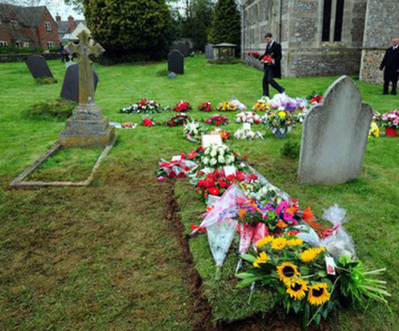
Since leaving Ireland, it took Margaret almost one year before she wrote home to her parents. She wanted to make sure that they could never reveal where exactly she and Joe were to her husband Thomas, so she provided them with a ‘Care of' address to write back to when they corresponded instead of Molly and Tom's address.
Shortly after writing to her parents, she received a letter of reply from her father. His tone was one of anger beneath the words he wrote as he informed Margaret that her mother had died two months earlier from a brain tumour. He made it quite evident by his written word that he was angry about the fact that he couldn’t even convey this news to his only daughter at the time as she hadn’t even thought fit to make them aware of her and Joe’s whereabouts! He enclosed a photograph of her mother's grave, 'just in case she and Joe ever cared to visit.' These words had been written in bitterness by her beloved father and they almost broke Margaret's heart in two reading them. The letter from her father left Margaret feeling wretched for many weeks to come.

Margaret fell into a fit of tears and couldn’t stop herself crying for hours on end during the coming days. She genuinely felt that her hands had been tied through not wanting Thomas to learn of her precise whereabouts. She knew deep down that she couldn't trust her catholic parents not to have told her husband, had they known and had he asked. It wounded her though to know that it had been her decision not to disclose her whereabouts that had resulted in her not attending her own mother’s funeral. There are certain events in every family's life which should never be ignored; births, weddings and deaths being the most important to observe, whatever one's difficulties happen to be.
It was over two weeks later before Margaret could compose herself sufficiently to reply to her father’s recent scathing letter in which she apologised for breaking contact with them. However, whatever words she wrote and however she sought to phrase them none seemed adequate enough to convey her sense of loss and the deep remorse that she felt.
Her father’s next letter arrived about two weeks after her reply to his first communication. In it, he indicated that even her 'abandoned' husband Thomas had attended her mother’s funeral and had been making enquiries about her and Joe’s whereabouts. It would seem that Thomas had told Margaret’s parents six months earlier that after he'd decided to leave his job in Portlaw and secure one elsewhere, he left Margaret and the child in the matrimonial abode until he'd managed to get both work and suitable living accommodation to send for them. When he did get settled, he sent for Margaret, only to discover that she and her daughter Joe had left Portlaw without a word of warning or a forwarding address. He then sold the house and tried to find his wife and child, but couldn't. They had abandoned him and had seemingly vanished from the face of the earth.
Thomas told Margaret's father that he dearly missed their family life and wanted to be reconciled with his wife and daughter at the earliest opportunity, especially as he feared that Margaret may not be able to adequately cope with the demands of motherhood, given her history of instability since they'd moved to Portlaw years ago.
Margaret’s father had indicated to Thomas that she and Joe had taken the ferry across to England, but wasn’t aware of their precise whereabouts. He said that Thomas didn't believe him and parted somewhat angrily. Margaret's father concluded his letter by indicating, "But had I known where you and little Joe was, I'd have been duty bound as a Christian to tell him. Oh Margaret, lass, why have you abandoned your marriage vows? What made you leave your husband and deprive him of his wife and child? How could you? The poor man is heartbroken! What good can come of leaving a child without a father?"
It was over two weeks later before Margaret could compose herself sufficiently to reply to her father’s recent scathing letter in which she apologised for breaking contact with them. However, whatever words she wrote and however she sought to phrase them none seemed adequate enough to convey her sense of loss and the deep remorse that she felt.
Her father’s next letter arrived about two weeks after her reply to his first communication. In it, he indicated that even her 'abandoned' husband Thomas had attended her mother’s funeral and had been making enquiries about her and Joe’s whereabouts. It would seem that Thomas had told Margaret’s parents six months earlier that after he'd decided to leave his job in Portlaw and secure one elsewhere, he left Margaret and the child in the matrimonial abode until he'd managed to get both work and suitable living accommodation to send for them. When he did get settled, he sent for Margaret, only to discover that she and her daughter Joe had left Portlaw without a word of warning or a forwarding address. He then sold the house and tried to find his wife and child, but couldn't. They had abandoned him and had seemingly vanished from the face of the earth.
Thomas told Margaret's father that he dearly missed their family life and wanted to be reconciled with his wife and daughter at the earliest opportunity, especially as he feared that Margaret may not be able to adequately cope with the demands of motherhood, given her history of instability since they'd moved to Portlaw years ago.
Margaret’s father had indicated to Thomas that she and Joe had taken the ferry across to England, but wasn’t aware of their precise whereabouts. He said that Thomas didn't believe him and parted somewhat angrily. Margaret's father concluded his letter by indicating, "But had I known where you and little Joe was, I'd have been duty bound as a Christian to tell him. Oh Margaret, lass, why have you abandoned your marriage vows? What made you leave your husband and deprive him of his wife and child? How could you? The poor man is heartbroken! What good can come of leaving a child without a father?"

When Margaret read this latest letter from her father she knew that her husband had managed to pull the wool over her parent's eyes. Such deceit by him naturally angered her and had sent her mother to her grave believing the worse against her only daughter.
The only satisfaction that she could possible derive from her decision not to reveal her precise whereabouts to her parents, was the certain knowledge that they would have passed the information on to Thomas had they known it! However, this partially justification of her initial decision did little to temper the deep sense of disappointment in her. She now knew that her parent's sympathy lay with little Joe and the 'abandoned father' and not with her. Her parents had been wholly taken in hook-line and sinker by her conniving husband.
She saw little point attempting to counter the untruths that Thomas had told both her mother and father until her father seemed ready to consider her side. Her husband had proved devious in the extreme. It would seem that Thomas had told them that the reason they'd received so little contact and so few visits from Margaret and Joe since their granddaughter's birth was because of Margaret's mental instability and her proneness to finding it difficult in being a mother, along with innumerable bouts of deep depression during which she would spend days in bed. During many of her depressive periods, Thomas would have no option, but to hire in help to look after his daughter while he earned a living teaching. Thomas had told them that the more he'd begged Margaret for the three of them to visit their parents, the more she set her face against it and the more depressed she became! He had even told her father that Margaret had threatened to commit suicide if he forced her to visit her parents.
It was evident from one line of the latest letter her father had written that he didn’t yet feel ready to see Margaret again as he'd still too much anger in his heart at the way things had worked out. Margaret's father already felt pushed out of their lives by having been denied the opportunity of developing a proper relationship with his only granddaughter during Joe's early years of life.
Since Joe's birth, the real reason that Margaret and Thomas had hardly ever visited Connemara or extended an offer to them to visit Portlaw was down to Thomas' refusal to do so and not Margaret's. Her husband had completely twisted the truth around, blaming her as opposed to himself for the absence of contact between grandparents and their granddaughter.
Her father wrote as though this absence of contact with his only daughter and grandchild had effectively wrecked all former memories of happier times of the family home she'd grown up in. One of the sentiments he expressed in his letter to Margaret was, "It's as though the happy home where me and your dear mother brought you up in and spent so many happy and joyous moments is no longer a memory that I can honestly hold on to. Your selfish actions has smashed that image to pieces as though you took a huge crane with ball and chain and after demolishing its four walls, you wrecked its very foundation!"
Now, Margaret dearly wished that she had burdened her beloved parents with her worries at the unhappiest time of her marriage to Thomas Walsh and had shown him up for the callous and brutal creature he really was instead of having protected his image and the sham image of their failed marriage! Whatever her parents may have thought of her then couldn't have been as bad as what they later went on to think!
However, Margaret had been brought up to behave in a particular way and it was such religious conditioning of her very upbringing which would determine her action to marital adversity. At the time, Margaret had felt so ashamed about her failed marital relationship that she simply kept everything to herself. A common piece of advice often spoken by priests in the confessional box at the time was, "The secrets of a marriage are best kept within that marriage. Now go on back home and make peace with your husband and the father of your children. It's his forgiveness that you'll be needing; not mine! "
Consequently, Margaret didn’t tell her parents or her priest that her husband strictly forbade her visiting her family after their move to Portlaw without his specific permission, or that on those few occasions when he relented and allowed her to visit her parents, that he emphatically refused to accompany his wife and daughter. Margaret kept these details to herself at the time to avoid burdening her beloved parents.
It was only in one of her return letters that she informed her father of the total accuracy of their unhappy state of affairs that had existed between them since their very first year of marriage and which worsened after they'd arrived in Portlaw. Over the letters she later wrote, Margaret told her father the truth as she had experienced it and even included the revelation of her husband's physical, psychological and mental cruelty and his total refusal to acknowledge his daughter Joe by word or look, even once following her birth.
While Margaret continued to write to her father over the years that followed, and even though she now sensed that he had reluctantly accepted her version of events as opposed to the allegations of Thomas, she sensed that she and her father had lost a closeness in bond between them that would probably never be recovered.
Her future letters tended to be more about his granddaughter Joe as opposed to changes in her own life. She made little mention about Tom and Molly or referred to anything that might identify her precise area of location in Liverpool where she and Joe now lived, apart from indicating that she'd found a perfect couple who had opened up both home and heart to them.
The only satisfaction that she could possible derive from her decision not to reveal her precise whereabouts to her parents, was the certain knowledge that they would have passed the information on to Thomas had they known it! However, this partially justification of her initial decision did little to temper the deep sense of disappointment in her. She now knew that her parent's sympathy lay with little Joe and the 'abandoned father' and not with her. Her parents had been wholly taken in hook-line and sinker by her conniving husband.
She saw little point attempting to counter the untruths that Thomas had told both her mother and father until her father seemed ready to consider her side. Her husband had proved devious in the extreme. It would seem that Thomas had told them that the reason they'd received so little contact and so few visits from Margaret and Joe since their granddaughter's birth was because of Margaret's mental instability and her proneness to finding it difficult in being a mother, along with innumerable bouts of deep depression during which she would spend days in bed. During many of her depressive periods, Thomas would have no option, but to hire in help to look after his daughter while he earned a living teaching. Thomas had told them that the more he'd begged Margaret for the three of them to visit their parents, the more she set her face against it and the more depressed she became! He had even told her father that Margaret had threatened to commit suicide if he forced her to visit her parents.
It was evident from one line of the latest letter her father had written that he didn’t yet feel ready to see Margaret again as he'd still too much anger in his heart at the way things had worked out. Margaret's father already felt pushed out of their lives by having been denied the opportunity of developing a proper relationship with his only granddaughter during Joe's early years of life.
Since Joe's birth, the real reason that Margaret and Thomas had hardly ever visited Connemara or extended an offer to them to visit Portlaw was down to Thomas' refusal to do so and not Margaret's. Her husband had completely twisted the truth around, blaming her as opposed to himself for the absence of contact between grandparents and their granddaughter.
Her father wrote as though this absence of contact with his only daughter and grandchild had effectively wrecked all former memories of happier times of the family home she'd grown up in. One of the sentiments he expressed in his letter to Margaret was, "It's as though the happy home where me and your dear mother brought you up in and spent so many happy and joyous moments is no longer a memory that I can honestly hold on to. Your selfish actions has smashed that image to pieces as though you took a huge crane with ball and chain and after demolishing its four walls, you wrecked its very foundation!"
Now, Margaret dearly wished that she had burdened her beloved parents with her worries at the unhappiest time of her marriage to Thomas Walsh and had shown him up for the callous and brutal creature he really was instead of having protected his image and the sham image of their failed marriage! Whatever her parents may have thought of her then couldn't have been as bad as what they later went on to think!
However, Margaret had been brought up to behave in a particular way and it was such religious conditioning of her very upbringing which would determine her action to marital adversity. At the time, Margaret had felt so ashamed about her failed marital relationship that she simply kept everything to herself. A common piece of advice often spoken by priests in the confessional box at the time was, "The secrets of a marriage are best kept within that marriage. Now go on back home and make peace with your husband and the father of your children. It's his forgiveness that you'll be needing; not mine! "
Consequently, Margaret didn’t tell her parents or her priest that her husband strictly forbade her visiting her family after their move to Portlaw without his specific permission, or that on those few occasions when he relented and allowed her to visit her parents, that he emphatically refused to accompany his wife and daughter. Margaret kept these details to herself at the time to avoid burdening her beloved parents.
It was only in one of her return letters that she informed her father of the total accuracy of their unhappy state of affairs that had existed between them since their very first year of marriage and which worsened after they'd arrived in Portlaw. Over the letters she later wrote, Margaret told her father the truth as she had experienced it and even included the revelation of her husband's physical, psychological and mental cruelty and his total refusal to acknowledge his daughter Joe by word or look, even once following her birth.
While Margaret continued to write to her father over the years that followed, and even though she now sensed that he had reluctantly accepted her version of events as opposed to the allegations of Thomas, she sensed that she and her father had lost a closeness in bond between them that would probably never be recovered.
Her future letters tended to be more about his granddaughter Joe as opposed to changes in her own life. She made little mention about Tom and Molly or referred to anything that might identify her precise area of location in Liverpool where she and Joe now lived, apart from indicating that she'd found a perfect couple who had opened up both home and heart to them.
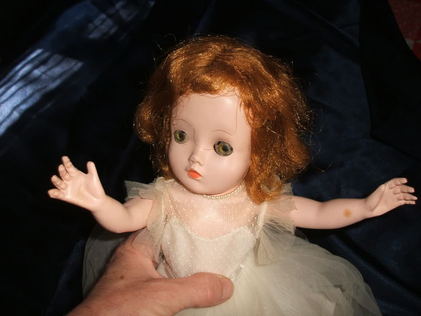
Margaret grieved the loss of her beloved mother and from time to time she would take out a snap shot of little Joe and her Grandparents Mawd that had been taken on one of the few occasions that she'd been allowed to visit them.
She did however arrange for Tom to take a photograph of the first and only doll that Joe had ever owned and which Margaret's parents had bought her upon her birth.This was simply Margaret's way of saying that Joe's Grandfather would always remain a very important person in their life.
Margaret felt so sad that she could not provide her father with the means of seeing herself and Joe without opening up the very real possibility of her husband Thomas finding out their whereabouts.
She did however arrange for Tom to take a photograph of the first and only doll that Joe had ever owned and which Margaret's parents had bought her upon her birth.This was simply Margaret's way of saying that Joe's Grandfather would always remain a very important person in their life.
Margaret felt so sad that she could not provide her father with the means of seeing herself and Joe without opening up the very real possibility of her husband Thomas finding out their whereabouts.
XXXXX

During the first two and a half years that Margaret worked at the library, she submitted two novels she’d written to a number of publishers and while having received positive feedback from them, none felt that she was yet publishable.
She didn’t give up this dream of becoming a writer though. Instead, she provisionally placed the writing of a novel to one side and started writing short stories instead, which were submitted to a number of women’s magazines. She would often stay up most of the night writing away whenever the mood caught her.
On her thirteenth magazine submission, Margaret was over the moon to receive an offer from one magazine to publish the short story she’d submitted to them. They offered her £45, along with a request to submit any other stories of similar length and type, with an undertaking that any future fees for accepted work from her would be kept under ongoing review.
So, although it wasn’t a book deal which she'd managed to secure resulting in her name as the author printed across the cover page of a 'best seller', at least the magazine had paid her for her written word and identified her as the writer of the short story on its inner pages. She could now legitimately call herself a professional writer having received a fee! Naturally, Joe and her friends, Molly and Tom, were very happy for her.
Apart from the death of her mother and her subsequent estrangement from her father, life had certainly taken a turn for the better since Margaret and daughter Joe had come to live with Tom and Molly. For the very first time in a long while, both mother and daughter seemed very settled in their surroundings.
XXXXX
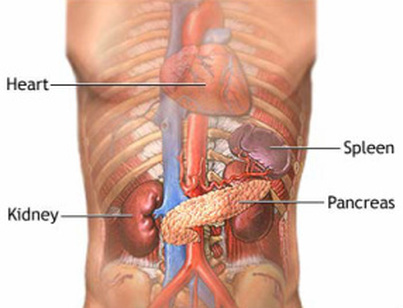
At a time when all seemed settled for Margaret and Joe, life struck the couple a bitter blow once more. Margaret arrived home from work one Wednesday evening to find Tom crying in his kitchen. He couldn’t seem to stop weeping however much Margaret tried to console him.
"What’s up, Tom?” Margaret asked.
Seeing Tom tearful also upset young Joe, who'd walked in on them.
“It’s Molly. She’s been taken to hospital. They’re not sure how long she's left. I’ve got to get back there now. Please lock up for me and .......tell the other lodgers............well tell them to see to themselves for the next few days when I’ll sort something out.”
“Don’t you bother your head about that, we’ll be okay. I’ll look after the lodgers, but what happened, Tom?” Margaret asked. "What's wrong with Molly. She's too young to have anything too serious, surely?"
"Illness has no age discrimination, Margaret," he replied.
"What’s up, Tom?” Margaret asked.
Seeing Tom tearful also upset young Joe, who'd walked in on them.
“It’s Molly. She’s been taken to hospital. They’re not sure how long she's left. I’ve got to get back there now. Please lock up for me and .......tell the other lodgers............well tell them to see to themselves for the next few days when I’ll sort something out.”
“Don’t you bother your head about that, we’ll be okay. I’ll look after the lodgers, but what happened, Tom?” Margaret asked. "What's wrong with Molly. She's too young to have anything too serious, surely?"
"Illness has no age discrimination, Margaret," he replied.

Tom told Margaret that Molly hadn’t been in the best of health for a few months now and he’d only been able to persuade her to visit the doctor’s surgery this week to get checked up. The surgery took some blood tests and sent them off. When the results had come back today, Molly had been admitted to The Royal Liverpool Infirmary on Brownlow Street as an emergency admission.
As he spoke to Margaret, Tom held a early photograph of Molly in his hand. It was a snap shot of Molly running in a cornfield when they'd first met; at a time when Molly had been such a free spirit.
“She’s got.........it looks like poor Molly’s got a double dose of cancer. She has pancreatic cancer plus an advanced ovarian tumour. I understand that the cancer has already reached stage four and because it wasn’t caught early enough, it has spread away from the ovary to other parts of her body."
“But how could she... how could they have not known that something was wrong sooner?” Margaret asked in a tone, which contained a grain of anger propelling the words from her mouth.
“It would seem that ovarian cancer has often reached its advanced stages by the time it's first diagnosed as the woman may not even have the symptoms when the cancer is in its early stages. It also seems that presenting symptoms may also be too vague to point in that direction,” Tom said.
“Can't...... Can’t they offer her any treatment?” Margaret asked.
“It’s too late for surgery and chemotherapy. It would seemingly prove futile. Only palliative care is advisable as other major organs also look to be affected.”
“Tom, you poor, poor, man. Look here! Me and Joe are coming to the hospital with you. Good God man, you...you and Molly are as good as family to us. Now let’s get off quick. Come on Joe,” Margaret said as she appeared to take control of the situation.
Little Joe couldn't bear to see Tom obviously unhappy and she ran to him and started to cry. Tom cuddled her and took out his handkerchief to dry the little girl's tears.

When Tom, Margaret and Joe arrived at the hospital to see Molly, she was initially sitting in a chair at the side of her hospital bed instead of sitting up in bed. She appeared quite cheerful to see her visitors, but in her slip, Margaret could see that Molly had lost quite a bit of weight over the past few weeks. After less than five minutes in her presence, Margaret could tell that Molly was in a state of denial. It was as though she was happy to talk about any subject under the sun so long as it didn’t touch upon her condition and why she was occupying an emergency bed in the Infirmary. On the few occasions she did make reference to her health, she simply made out that there wasn’t any better tonic she needed to take at the present that didn’t involve getting back home to familiar surroundings and the people she most loved.
On the way out of the hospital after visiting Molly, Tom had a word with one of the ward doctors.
“I’m sorry, Mr Dransfield, we’ve tried to explain what’s going on to your wife, but she is obviously a person who either doesn’t want or need to know! Our policy is not to force unwelcome news down the throat of any patient with a terminal condition who clearly displays the wish not to hear it!”
“What’s to be done, doctor?” Tom asked.
“We’ll keep her here a week to monitor her and then discharge her home with visits from the Macmillan Nurses; if she’ll agree to see them.”

One week later, Molly had returned home. She was very weak and being in the final stage of her illness, she needed a dosage of morphine regularly to control the pain, particularly during the night.
Tom hired in some kitchen and maid help to deal with the guests and Margaret helped out with cover whenever it was needed. His night hours now seemed very eerie as his wife's final days approached and often Margaret heard Tom pacing the bedroom floor. His false leg seemed to make a different sound on the floorboards during the quietness of the night than it did during the day. The echo of Tom's footsteps told Margaret that he was in a different place as he prepared himself for the inevitable death of his beloved wife.
In the ten weeks that Molly was back at home before she died, not once did she ever acknowledge the inevitable outcome of her ovarian cancer and she never once voiced the dreaded ‘C’ word.
Tom hired in some kitchen and maid help to deal with the guests and Margaret helped out with cover whenever it was needed. His night hours now seemed very eerie as his wife's final days approached and often Margaret heard Tom pacing the bedroom floor. His false leg seemed to make a different sound on the floorboards during the quietness of the night than it did during the day. The echo of Tom's footsteps told Margaret that he was in a different place as he prepared himself for the inevitable death of his beloved wife.
In the ten weeks that Molly was back at home before she died, not once did she ever acknowledge the inevitable outcome of her ovarian cancer and she never once voiced the dreaded ‘C’ word.

Tom was an emotional wreck and because Molly wouldn’t acknowledge that she was dying, he was also denied the right to acknowledge the extent of her rapid demise in her presence. Not being the type of man to suppress his true feelings, Tom found these ten weeks the hardest and cruellest ten weeks he’d ever experienced in his life. Sometimes when he looked on Molly asleep in bed, she looked entirely peaceful and one would never have thought that she was rapidly dying, apart from her increased body heat that would invariably result in her throwing the bedclothes off her as she sweated, tossed and turned.

The morning after the night when Molly passed away in her sleep, Tom looked like an empty vessel in which no visible signs of emotion remained. He’d been drained of any immediate warmth and affection he felt he ought to have been feeling and was instead angry with Molly for having died without giving him an opportunity to say things that he wanted to say; to say things that needed to be said: big things, small things, necessary things; everything and anything to do with dying and its aftermath!
He didn’t even know if he she'd wanted burying in the ground or be cremated. He didn’t know if she'd had ever taken out a life policy to cover funeral arrangements or if she had any wishes as to the disposal of her belongings: did she want them giving away or what? Overnight, the shock of Molly's death, even though it had been expected, appeared to make the widower age ten years and a greyness in his hair became more noticeable.
He didn’t even know if he she'd wanted burying in the ground or be cremated. He didn’t know if she'd had ever taken out a life policy to cover funeral arrangements or if she had any wishes as to the disposal of her belongings: did she want them giving away or what? Overnight, the shock of Molly's death, even though it had been expected, appeared to make the widower age ten years and a greyness in his hair became more noticeable.

As he waited for the funeral hearse to arrive on the morning of his wife’s burial, Tom couldn’t get his head around how anyone who loved him and whom he’d loved faithfully for all those years, could be so selfish as to go and die without talking about it beforehand and providing him with the opportunity to prepare the ground for the healthy grieving to follow such a loss! Thinking such uncharitable thoughts about a woman who’d stood alongside him through thick and thin made Tom weep and weep as Molly’s coffin was lowered into the ground.
His stomach churned and wrenched with a sense of sadness so profound that had not Margaret and little Joe been stood at the graveside next to him holding his hand, he might have cast his own body into the hole in the ground and begged to be buried alive alongside her.
His stomach churned and wrenched with a sense of sadness so profound that had not Margaret and little Joe been stood at the graveside next to him holding his hand, he might have cast his own body into the hole in the ground and begged to be buried alive alongside her.
XXXXX
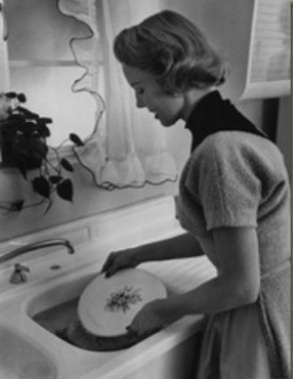
Over the next six months following Molly’s death, Margaret found herself gradually stepping into the shoes of the widower’s wife. Without realising what was happening at the time, instead of doing her writing in her free hours after arriving home, she spent most of her evenings washing and ironing or doing one of those household chores that seems to have been exclusively placed within the capacity and function of ‘women only’ since time immemorial.
While there had never been any physical contact between Tom and Margaret which couldn’t be performed within full eyesight of her daughter Joe, over the past couple of months Margaret had occasionally caught Tom looking across at her with the type of eyes that are stimulated only by physical need and desire.
While there had never been any physical contact between Tom and Margaret which couldn’t be performed within full eyesight of her daughter Joe, over the past couple of months Margaret had occasionally caught Tom looking across at her with the type of eyes that are stimulated only by physical need and desire.

One of the strange facts of life is that women are more likely to know the meaning of what is lurking in the mind of a silent pair of male eyes than a man is in assessing a woman’s spoken intent. What Margaret couldn’t account for, was the fact that she had now been celibate for almost ten years and that fact also made her more vulnerable in the presence of reciprocated need. Perhaps she'd been giving off signals of physical and emotional 'availability' without knowing it?
There had naturally been times over the years when she’d needed to relieve herself of the sexual frustration she held, but such occasions had in themselves proved rarer as she vicariously spread her legs across the pages of her manuscripts as she wrote her romantic stories. As a woman who devoted virtually all her energy to the craft of writing, instead of feeling her emotions through close contact and communication with another human being in real life, she now put all her unspent emotions and repressed feelings onto the written page and into the mouths of the fictitious characters she wrote about.
Even a lady among ladies, who would never resort to even the mildest form of crudity, is empowered as an authoress to make her characters of licentiousness and debauchery ‘shit’ and ‘fuck’ whenever or wherever she wants them to. She had discovered the merits of such vicarious licence that the power and liberty of expression invests all authors with!
There had naturally been times over the years when she’d needed to relieve herself of the sexual frustration she held, but such occasions had in themselves proved rarer as she vicariously spread her legs across the pages of her manuscripts as she wrote her romantic stories. As a woman who devoted virtually all her energy to the craft of writing, instead of feeling her emotions through close contact and communication with another human being in real life, she now put all her unspent emotions and repressed feelings onto the written page and into the mouths of the fictitious characters she wrote about.
Even a lady among ladies, who would never resort to even the mildest form of crudity, is empowered as an authoress to make her characters of licentiousness and debauchery ‘shit’ and ‘fuck’ whenever or wherever she wants them to. She had discovered the merits of such vicarious licence that the power and liberty of expression invests all authors with!
XXXXX

One night, approximately eight months after Molly’s death, Margaret couldn’t sleep so she sat up in her room and started to write. Her daughter Joe, being almost eight years old now, had been allocated the next room along to her mother to sleep in.
As Margaret sat at her typewriter with a mug of tea she’d made, she heard the faintest of knocks at her door. She opened it to find Tom there, partially undressed.
“I’m so sorry to disturb you, Margaret, but my leg’s stuck,” he said as he pointed to his prosthesis. “Sometimes if I’ve been on it all day it won’t come off without chaffing and pulling the skin. Can............will you pull it off for me if I sit on my bed? It’s simply hopeless trying to sleep in it.”
“Of course I will, Tom,” Margaret replied as she stood up and went back along the corridor to Tom’s room.
Tom sat on the bed and instructed her to tug and if possible, remove it in one attempt. “Don’t bother if I flinch,” he told her. ”Molly used to have to do this every now and then and she didn’t have the strength of pull I’m sure you have.”
Margaret pulled off Tom’s prosthesis and helped to bandage the stump before easing Tom’s leg back beneath his bed sheets. As she did so, she couldn’t help but notice the stiffness of his manly resolve as her fingers touched that part of the leg above his prosthesis. He thanked her politely and she returned to her room.
While no inappropriate contact between Tom and Margaret had taken place that night, had truth been known and circumstances more conducive, neither party would not have objected to being physically closer to the other. Barely eight months had passed since Tom had become a widower and as for Margaret, she was still a married woman with a husband somewhere whom she'd no desire ever to see again!
As Margaret sat at her typewriter with a mug of tea she’d made, she heard the faintest of knocks at her door. She opened it to find Tom there, partially undressed.
“I’m so sorry to disturb you, Margaret, but my leg’s stuck,” he said as he pointed to his prosthesis. “Sometimes if I’ve been on it all day it won’t come off without chaffing and pulling the skin. Can............will you pull it off for me if I sit on my bed? It’s simply hopeless trying to sleep in it.”
“Of course I will, Tom,” Margaret replied as she stood up and went back along the corridor to Tom’s room.
Tom sat on the bed and instructed her to tug and if possible, remove it in one attempt. “Don’t bother if I flinch,” he told her. ”Molly used to have to do this every now and then and she didn’t have the strength of pull I’m sure you have.”
Margaret pulled off Tom’s prosthesis and helped to bandage the stump before easing Tom’s leg back beneath his bed sheets. As she did so, she couldn’t help but notice the stiffness of his manly resolve as her fingers touched that part of the leg above his prosthesis. He thanked her politely and she returned to her room.
While no inappropriate contact between Tom and Margaret had taken place that night, had truth been known and circumstances more conducive, neither party would not have objected to being physically closer to the other. Barely eight months had passed since Tom had become a widower and as for Margaret, she was still a married woman with a husband somewhere whom she'd no desire ever to see again!

Over the next year, Margaret and Tom gradually gravitated towards a closer union with each other. They seemed naturally happy to be in each other’s company at every available opportunity. It was during the year following Molly’s death when the inevitable eventually happened.
Given that both Tom and Margaret should have seen it coming, one would be forgiven for thinking that the occasion could have slipped into a paragraph of one of Margaret’s romantic stories with the greatest of ease.
Though it may be true that things done spontaneously are not always done as well as they ought to have been, they invariably prove more intense and exciting at the moment of their execution.
Given that both Tom and Margaret should have seen it coming, one would be forgiven for thinking that the occasion could have slipped into a paragraph of one of Margaret’s romantic stories with the greatest of ease.
Though it may be true that things done spontaneously are not always done as well as they ought to have been, they invariably prove more intense and exciting at the moment of their execution.

On the weekend afternoon in question, Joe was at the local cinema with a friend from school and Margaret was obtaining items from the fridge for the evening meal for herself, Tom and Joe. Believing that Tom was having an afternoon nap, Margaret had remained scantily dressed after showering. As she bent to look inside the fridge, her waist covering garment rode up her thighs. Tom entered the kitchen area and as he viewed Margaret from the rear, he felt himself harden. He moved towards her and without a second thought, he kissed her on the nape of her neck, gently placing his hands around her waist in a grip of firm intent.

Margaret, although somewhat surprised by the approach nevertheless seemed to be prepared to ignore it initially. After Tom had kissed her neck once more, Margaret turned and looked him in the eye. Then, she proceeded to kiss Tom fulsomely on the lips and pressed her body up close to his. One thing naturally led to another and ten minutes later, Tom was well and truly legless and curled up in bed with Margaret, with his prosthesis having been thrown to the ground during a moment of passionate embrace.
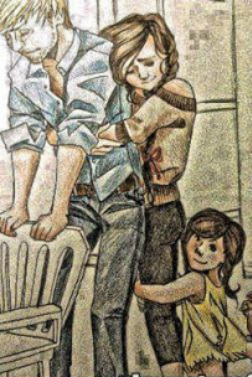
It felt so good for both parties feeling the human warmth of another again; it was so good for each of them. Within a matter of days, Margaret had spoken with her daughter Joe about the possibility of the three of them becoming a family unit.
“But we are a family unit, Mum," Joe replied. "There's me, you and dad. Doesn't that make us a proper family?"
It was at this point that Margaret was reminded that from all the people in the world, it was Tom Dransfield who was perceived as her father by Joe. The only thing that made this family situation less than perfect was Joe's surname by which she was known.
“That's easily remedied, " Tom pointed out to Margaret. "From today, Joe will be officially known here, home, at school and everywhere she goes as Joe Dransfield, our daughter, and you will be known as Margaret Dransfield, my wife."
"But your neighbours know that isn't so!" Margaret added.
"The current neighbours might, but not the new ones," Tom said smilingly.
"The... What new ones?" Margaret asked.
"It seems to me that now is as good a time as any for the family to move on and start afresh. I say we sell up, and move to somewhere new; somewhere we can all have a new start," Tom said. "This property is mortgage free and the money from its sale will see us nicely settled elsewhere!"
Having decided to go for it, over the following year arrangements were made to sell the boarding house as a going concern and to move elsewhere in the country and start afresh as Mr and Mrs Dransfield and their nine-year-old daughter Joe. To cement the union of being a proper family in Joe's mind, Tom arranged for a local vicar to give him and Margaret a blessing; an act that was one step removed from the crime of bigamy, but one that would provide their daughter Joe with an unforgettable image of the day that mum and dad Dransfield were married again!
“But we are a family unit, Mum," Joe replied. "There's me, you and dad. Doesn't that make us a proper family?"
It was at this point that Margaret was reminded that from all the people in the world, it was Tom Dransfield who was perceived as her father by Joe. The only thing that made this family situation less than perfect was Joe's surname by which she was known.
“That's easily remedied, " Tom pointed out to Margaret. "From today, Joe will be officially known here, home, at school and everywhere she goes as Joe Dransfield, our daughter, and you will be known as Margaret Dransfield, my wife."
"But your neighbours know that isn't so!" Margaret added.
"The current neighbours might, but not the new ones," Tom said smilingly.
"The... What new ones?" Margaret asked.
"It seems to me that now is as good a time as any for the family to move on and start afresh. I say we sell up, and move to somewhere new; somewhere we can all have a new start," Tom said. "This property is mortgage free and the money from its sale will see us nicely settled elsewhere!"
Having decided to go for it, over the following year arrangements were made to sell the boarding house as a going concern and to move elsewhere in the country and start afresh as Mr and Mrs Dransfield and their nine-year-old daughter Joe. To cement the union of being a proper family in Joe's mind, Tom arranged for a local vicar to give him and Margaret a blessing; an act that was one step removed from the crime of bigamy, but one that would provide their daughter Joe with an unforgettable image of the day that mum and dad Dransfield were married again!
|
Click here for the next page
|
Click here for the previous page
|
